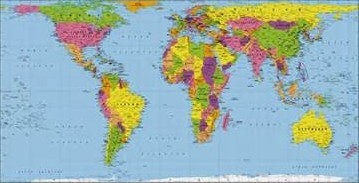Prophetic Love’s Power
Editor’s Note: I am grateful for this interview which Dr. Coffin granted eight months prior to his death at the age of 81.
QUOFLECTIONS™
ON SPIRITUALITY AND ETHICS
Prophetic love’s power is inspiring
“Anyone who has a deep love for his country
will address the flaws of his country.”
Rev. Dr. William Sloane Coffin
After interviewing Dr. Coffin for an hour last Sunday on the porch of his modest Strafford, Vermont home, I am struck by his exuberance for the power of love. In his book, Credo, Coffin writes of the indispensability of this virtue, “I believe it is better not to live than not to love.”
“Faith is being grasped by the power of love,” Coffin also writes. He explains, “If you’re not loving, how can you claim to be a good Jew or a good Muslim or a good Christian?” Coffin says many very loving people are not especially religious and may even be anti-religious. Their love, nevertheless, exhibits faith: “They are responding to the power of love, but they may not recognize where it came from.”
Love is also intertwined with truth. “The functions of truth,” Coffin states, “are to love God and love neighbor.” Truth involves more than understanding a sacred text. “What is a sacred text until it’s translated into sacred deeds? Let’s have some sacred deeds,” he implores, “like loving our neighbor.” Coffin believes fidelity to truth means our neighbor includes people of different nationalities, races, gender, economic status and sexual orientation.
Love, Coffin stresses, is not sentimentality: Many churches are “too mooshy.” He cites leaders like Gandhi, Jesus and King who demonstrate that “compassion demands confrontation.” He adds, “People who speak the truth can build community. People who own the truth—possess the truth—can’t, except with others who share their beliefs.”
Coffin lives his convictions. A civil rights organizer who worked with Dr. King, he was arrested as a “Freedom Rider.” An early opponent of the Vietnam War, Coffin counseled students as Yale’s Chaplain. He was indicted for conspiracy to counsel, aid and abet draft resistance and portrayed as Rev. Sloan in Doonesbury.
Coffin also served as Senior Pastor at Riverside Church in New York City, one of the nation’s preeminent pulpits. His fervent nuclear pacifism led to his presidency at SANE/Freeze, the largest U.S. peace and justice organization. His anti-war activism is also informed by his service in World War II and post-war CIA work in Germany training Russian refugees to oppose Stalinism.
What would improve our nation’s spiritual health? Coffin pauses. “I often think consumerism is the primary glue which holds the United States together.” He cities advertising’s pervasive message: “You need this; you need that.”
Coffin then shares an insight regarding wealth: “There are two ways to be rich. One is to have a lot of money, and the other is to have few needs.” Noting the second option is rarely entertained, he asserts, “I think we will make great progress when the poor are not left at the mercy of their poverty and the rich are not left at the mercy of their riches.”
“Jesus was the servant of the poor,” Coffin states, “and he put first what society usually puts last and counts least.” Accordingly, he believes government must redress “so much glaring inequality between haves and have-nots.” Coffin writes in Credo, “The way we are cutting taxes for the wealthy and social programs for the poor, you’d think the greedy were needy and the needy were greedy.”
Our institutions must also change their agendas: “The churches and universities are long on charity,” Coffin emphasizes, “because charity doesn’t affect the status quo, whereas justice leads you immediately into political confrontation.”
“But there’s so much injustice in America now,” he continues. “The fact that we’re the most violent nation in the world, we incarcerate about seven times the populations that people in Europe do, we have 18% of children in poverty as compared to less than 8% in Sweden.”
“Maybe people will once again say this is no way to do business—especially religious people….I hope I’m right.”
Perhaps Dr. Coffin’s prophetic love will inspire us to go beyond charity and pursue political action that seeks to correct our nation’s injustices.
©2005 Harry Rix. All rights reserved.
Related Articles
The Values of a Galactic Education
A Prophet’s Treason
A Revolution of Values
What is Our Greatest Moral Challenge?
Glimpsing the Creator

